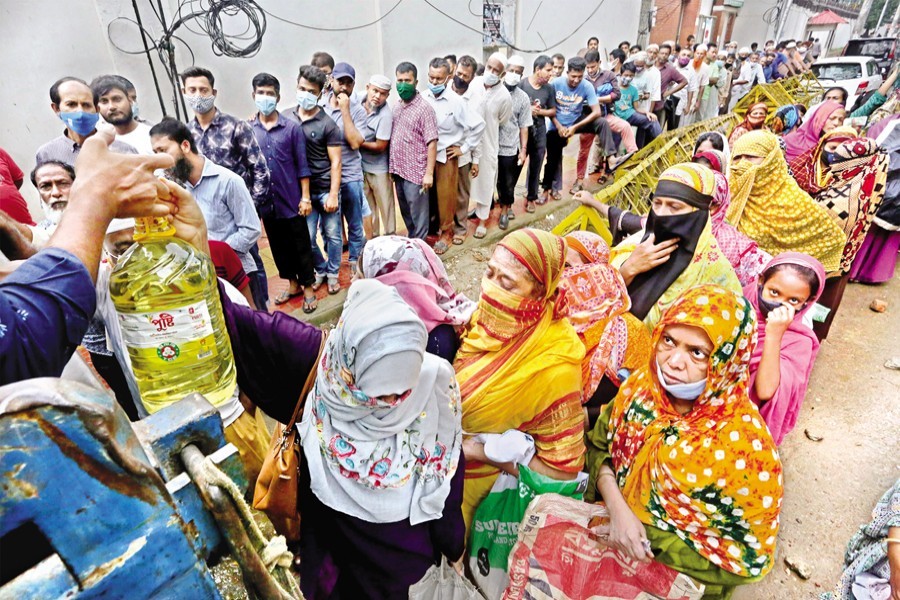The pandemic has unsettled life and living of most people. Only the affluent section has managed to escape its wrath. They too are uncomfortable for not being able to enjoy life fully because of the travel ban.
The negative effect of intermittent restrictions imposed from time to time because of the Covid-19 on the poor and fixed-income people could hardly be realised. Thousands have lost jobs and means of earning. Research studies have produced some probable numbers, but those do not represent the depth of the scars that the pandemic has created in the day-to-day life of the poor and low-income people.
In such a critical situation, the rising prices of daily necessities such as rice, edible oils, pulses, sugar have only made things worse for them.
The prices of rice, edible oils and sugar have reached their record highs. Rice, in particular, continued to be pricier unabatedly even though the country reaped two bumper harvests this year and the government lowered import duty on the item.
Edible-oil prices have gone up by nearly 70 per cent during the last five to six months. The refiners concerned have blamed the rising international prices for the hike. The sugar refiners have followed suit. They, too, have been raising the prices of their imports citing the same reason.
The long queues before the makeshift sales points of the Trading Corporation of Bangladesh (TCB) and the presence of many middle-class faces in them do tell how difficult the situation is as far as prices of essentials are concerned.
It is hard to say the government has been doing enough to deal with the price situation except for issuing a warning against the acts of hoarding and price manipulation. The commerce ministry held a meeting with importers, traders and refiners to review the price situation on Wednesday last. At the end of the meeting, the commerce secretary briefed the newsmen, saying that the government would take legal action if anyone resorts to hoarding and profiteering.
These are old clichés that officials use most of the time. The truth is they do not do anything tangible to bring the prices of essentials down.
Rice price is a sensitive issue. But it is difficult to say the government has handled it efficiently. With two good harvests and imports at reduced duty, there should be no reason for the prices of rice not coming down to a reasonable level. The opposite has happened. The rice prices have crept up unabatedly. Millers are blamed for the situation. The government should deploy an independent committee to investigate and find reasons for the rice-price volatility.
Amidst all these undesirable developments on the price front, the Bangladesh Bureau of Statistics (BBS) has reported that food inflation declined marginally in July last. It is hard to believe the latest food-inflation data under the prevailing circumstances.
Only some days back, the BBS drew appreciation from different quarters for presenting a few credible revised data on the GDP growth for the financial year 2019-20.
It would have been better had the BBS explained in detail the basis of their food-inflation estimate for July. Hopefully, it would do so while disclosing inflation data for the future months.
The price situation has given rise to dissatisfaction among consumers in general. It may not be fair to fuel their emotions further.


